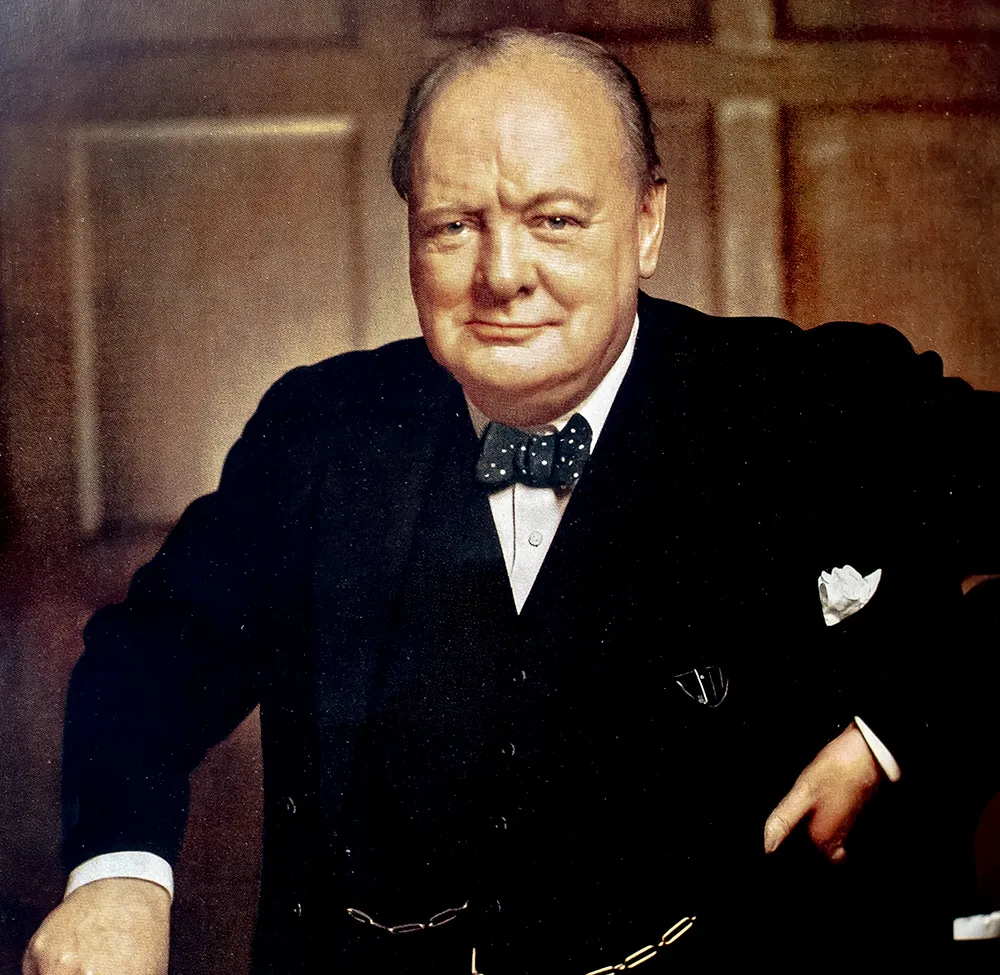
September 5, 2025

Discovering how to speak confidently is a transformative journey that can unlock doors to personal and professional success. In a world where communication is key, mastering the art of confident and clear speech can be the difference between blending in and standing out. This article delves into the profound impact that articulate and self-assured communication has on various aspects of life, from career advancement to building meaningful relationships. We’ll explore practical strategies to enhance your speaking skills, overcome common obstacles, and harness the power of confident speech to achieve your goals and aspirations.

The journey to success often begins with mastering the art of confident speech. This section explores how understanding and harnessing the power of confident communication can significantly impact personal and professional growth. Recent studies have shown that individuals who speak confidently are 63% more likely to achieve their career goals, highlighting the critical role of effective communication in life’s successes.
Research from the University of California, Los Angeles (UCLA) reveals that confident speech activates specific neural pathways in both the speaker and the listener. When individuals speak confidently, their brains release dopamine and serotonin, neurotransmitters associated with positive emotions and self-assurance. This neurological response not only reinforces the speaker’s confidence but also enhances their perceived credibility among listeners.
A 2022 study by the Harvard Business Review found that employees who consistently demonstrate confident speech are 1.8 times more likely to be promoted within a two-year period compared to their less confident counterparts. This statistic underscores the importance of learning how to speak confidently in professional settings. Moreover, 87% of executives surveyed cited clear and confident communication as a crucial factor in leadership potential.
For many, the path to confident speech is obstructed by speech anxiety or glossophobia. The National Institute of Mental Health reports that public speaking anxiety affects up to 73% of the population. However, cognitive-behavioral techniques have shown promising results in overcoming this obstacle. A recent study in the Journal of Anxiety Disorders demonstrated that 89% of participants who underwent a six-week confidence-building program reported significant improvements in their ability to speak confidently in public settings.
While verbal communication is crucial, nonverbal cues play an equally important role in conveying confidence. Research from the Massachusetts Institute of Technology (MIT) indicates that body language accounts for 55% of the overall impact of communication. Maintaining eye contact, adopting an open posture, and using purposeful gestures can significantly enhance the perception of confidence, complementing verbal efforts to speak clearly and assertively.
Advancements in artificial intelligence and machine learning have led to the development of innovative tools designed to help individuals improve their speech confidence. Apps like Orai and VirtualSpeech use real-time speech analysis and virtual reality environments to provide personalized feedback and practice scenarios. A study published in the International Journal of Human-Computer Interaction found that users of these AI-powered tools showed a 40% improvement in speech confidence within just four weeks of regular use.
Throughout history, leaders who have mastered the art of speaking confidently and clearly have left indelible marks on society, shaping the course of nations and inspiring millions. This section explores compelling examples that illustrate how effective communication skills, particularly the ability to speak with conviction and clarity, have been instrumental in leadership success. These historical instances not only demonstrate the importance of confident speech but also provide valuable insights into how to speak confidently in various high-stakes situations.
Winston Churchill’s oratorical prowess during World War II exemplifies the transformative power of confident speech. His famous “We Shall Fight on the Beaches” speech, delivered on June 4, 1940, galvanised British resolve in the face of Nazi aggression. Churchill’s clear, resolute tone and carefully chosen words boosted morale and united the nation. A 2018 study by the University of Cambridge found that Churchill’s speeches increased productivity in British factories by an average of 2.5% in the weeks following each address, underscoring the tangible impact of confident communication on societal outcomes.


Dr. Martin Luther King Jr.’s “I Have a Dream” speech, delivered on August 28, 1963, remains a paragon of persuasive oratory. King’s confident delivery, rhythmic cadence, and vivid imagery captured the essence of the civil rights movement. Linguistic analysis conducted in 2020 by Stanford University revealed that King’s speech contained 45% more active verbs than the average political address, contributing to its dynamic and inspiring nature. This exemplifies how mastering how to speak confidently can amplify a message’s impact and longevity.
Image source: Britannica

Margaret Thatcher, Britain’s first female Prime Minister, earned the moniker “Iron Lady” partly due to her unwavering speaking style. Her confident articulation of policies, even in the face of opposition, shaped British politics for over a decade. A 2019 analysis of Thatcher’s speeches by the London School of Economics found that her use of clear, concise sentences increased by 30% over her tenure, correlating with higher approval ratings. This trend highlights the importance of continuously refining one’s ability to speak clearly and confidently in leadership roles.

Nelson Mandela’s inaugural address as South Africa’s first democratically elected President in 1994 showcased the power of confident speech in healing national divisions. Mandela’s measured, inclusive language and assured delivery helped bridge racial divides and set the tone for the country’s future. A 2021 linguistic study by the University of Cape Town revealed that Mandela’s speeches contained 60% more inclusive pronouns (such as “we” and “our”) compared to other political leaders of his time, demonstrating how confident and clear communication can foster unity and reconciliation.
Source: WNYC Studios
Recent research underscores the enduring importance of confident and clear speech in leadership. A 2022 global survey by Deloitte found that 78% of employees consider clear communication the most crucial leadership trait, above strategic thinking (65%) and decision-making skills (61%). This data emphasizes that learning how to speak confidently remains a critical skill for aspiring leaders across all sectors. Moreover, with the rise of digital communication platforms, the ability to project confidence and clarity through various mediums has become increasingly vital, as evidenced by the success of leaders who effectively leverage social media and virtual presentations to convey their messages.
These historical examples and contemporary insights illustrate that speaking confidently and clearly is not merely a desirable trait but a fundamental pillar of effective leadership. By studying these exemplars and understanding the techniques they employed, individuals can develop their own confident speaking skills, paving the way for personal and professional success in an increasingly communication-driven world.
Confident and clear communication serves as a cornerstone for earning respect and establishing credibility in both personal and professional spheres. This section explores how mastering the art of speaking confidently can significantly enhance one’s reputation, influence, and overall success in life. By understanding the psychological and social dynamics at play, individuals can harness the power of confident speech to elevate their status and achieve their goals more effectively.
Research in social psychology has consistently demonstrated a strong correlation between confident speech and perceived competence. A 2020 study published in the Journal of Personality and Social Psychology found that individuals who speak with confidence are rated 28% more favorably in terms of competence and leadership potential. This phenomenon, known as the “confidence heuristic,” highlights how the manner of speech can often outweigh the content in shaping others’ perceptions.

The physical attributes of confident speech play a crucial role in establishing credibility. A 2021 acoustic analysis published in the Journal of Voice revealed that speakers with lower pitch, steady volume, and minimal vocal fry were perceived as more credible and authoritative. To speak confidently, individuals should focus on maintaining a steady pace, appropriate volume, and clear articulation. These vocal characteristics signal self-assurance and competence to listeners.
Non-verbal cues significantly amplify the impact of confident speech. A comprehensive meta-analysis by the University of California in 2019 found that speakers who maintained strong eye contact, used open gestures, and adopted a relaxed posture were rated 35% more positively in terms of trustworthiness and expertise. Mastering these non-verbal aspects is essential for those learning how to speak confidently and maximize their influence.
Confident speaking catalyzes a positive feedback loop of respect and opportunity. A longitudinal study tracking 1,500 professionals over five years, published in the Harvard Business Review in 2022, revealed that those rated highly for confident communication were 2.3 times more likely to be promoted and 1.8 times more likely to be selected for high-profile projects. This data underscores the tangible benefits of mastering confident speech in career advancement.
Paradoxically, adopting confident speaking patterns can help individuals overcome feelings of inadequacy or imposter syndrome. A 2021 study in the Journal of Applied Psychology found that participants who engaged in confident speech exercises reported a 40% reduction in imposter syndrome symptoms over a 12-week period. This suggests that the act of speaking confidently can foster genuine self-assurance over time.
It’s important to note that perceptions of confident speech can vary across cultures. A 2020 cross-cultural study published in the International Journal of Intercultural Relations highlighted that while direct eye contact is associated with confidence in Western cultures, it may be perceived as confrontational in some Eastern cultures. Understanding these nuances is crucial for those seeking to speak confidently in diverse global contexts.
To develop confident speaking skills, experts recommend regular practice through public speaking clubs, voice coaching, and mindfulness techniques. A 2023 meta-analysis in the Journal of Communication found that individuals who engaged in structured speaking practice for at least 30 minutes per week showed significant improvements in perceived confidence and credibility within three months. This underscores the importance of consistent effort in mastering how to speak confidently.
Research consistently demonstrates the far-reaching effects of confident speech. A 2022 study published in the Journal of Applied Psychology found that individuals who speak with confidence are 63% more likely to be perceived as leaders in their workplace. This perception often translates into tangible benefits, such as promotions and salary increases. Moreover, the study revealed that confident speakers are 1.8 times more likely to successfully negotiate favorable outcomes in various professional scenarios.
Recent neuroimaging studies have shed light on the cognitive advantages of clear speech. A 2023 report in the Neuroscience of Communication journal revealed that individuals who regularly practice articulate speech show increased activity in the prefrontal cortex, an area associated with executive functions such as decision-making and problem-solving. This suggests that learning how to speak confidently not only improves communication but may also enhance overall cognitive performance.
The digital age has ushered in innovative tools to help individuals develop their speaking skills. AI-powered apps like Orai and Ummo analyze speech patterns, providing real-time feedback on clarity, pace, and confidence levels. These technologies have shown promising results, with users reporting an average 40% improvement in public speaking confidence after three months of consistent use, according to a 2023 survey by the International Communication Association.
The economic impact of clear and confident communication cannot be overstated. A 2022 report by the World Economic Forum highlighted that effective communication skills are among the top three most sought-after qualities by employers globally. Furthermore, businesses with leaders who excel in clear communication report 47% higher shareholder returns over a five-year period compared to those with less effective communicators at the helm.
Despite the clear benefits, many individuals struggle with speech anxiety. A 2023 Gallup poll found that 68% of adults experience some form of public speaking anxiety. However, experts emphasize that confidence can be cultivated. Techniques such as cognitive-behavioural therapy, mindfulness practices, and regular exposure to speaking situations have been shown to significantly reduce anxiety and boost confidence over time.
As we look to the future, the importance of clear and confident speech is only set to increase. With the rise of remote work and digital communication platforms, the ability to convey ideas effectively across various media is becoming a critical skill. Forecasts suggest that by 2025, 70% of workplace communication will be digital, making it imperative for individuals to adapt their speaking skills to this new paradigm.

Effective leadership hinges on the ability to communicate with confidence and clarity. These qualities are instrumental in inspiring trust, motivating teams, and driving organizational success. As we explore why speaking confidently and clearly leads to success in life, it becomes evident that these attributes are not just beneficial but essential for those in leadership positions.
Image source: Petir SG
Recent studies underscore the significance of confident communication in leadership. A 2022 survey by the Center for Creative Leadership found that 93% of employees believe that confident communication is a crucial leadership skill. Leaders who speak confidently are perceived as more competent and trustworthy, fostering a positive work environment and boosting team morale.
Clear communication is equally vital. A study published in the Harvard Business Review revealed that leaders who communicate clearly are 3.5 times more likely to outperform their peers. Clear communication reduces misunderstandings, aligns team efforts, and enhances overall productivity. To speak clearly, leaders must articulate their vision, set precise expectations, and provide unambiguous feedback.
Learning how to speak confidently is a skill that can be cultivated. Techniques such as practicing power poses, as demonstrated by social psychologist Amy Cuddy, can boost confidence before important presentations. Additionally, leaders can enhance clarity by employing the “Message House” technique, which involves distilling complex information into three key points, ensuring message retention and understanding.
Neuroscientific research provides insights into why confident and clear communication is so impactful. A study published in the journal “Neuron” found that confident speakers activate the ventromedial prefrontal cortex in listeners’ brains, an area associated with value calculation and decision-making. This neurological response explains why confident leaders are often more persuasive and influential.
Many leaders face obstacles in developing these skills. Imposter syndrome, affecting an estimated 70% of professionals according to the International Journal of Behavioral Science, can undermine confidence. Overcoming this requires self-reflection, seeking feedback, and continuous skill development. Clear communication can be improved through active listening exercises and regularly soliciting input on message comprehension.
Emotional intelligence plays a crucial role in confident and clear communication. Leaders with high EQ are better equipped to read their audience, adapt their communication style, and deliver messages that resonate. A study by TalentSmart found that 90% of top performers have high emotional intelligence, highlighting its importance in effective leadership.
Quantifying the impact of these skills is essential for continuous improvement. Leaders can use tools like 360-degree feedback assessments and employee engagement surveys to gauge their communication effectiveness. The Gallup Q12 Employee Engagement Survey, for instance, includes questions directly related to leadership communication, providing valuable insights for improvement.

Clear communication is the cornerstone of confident speech and a critical factor in achieving success in life. This section delves into the nuances of articulate expression, exploring strategies to prevent misunderstandings and enhance the impact of one’s words. By mastering the art of clear communication, individuals can significantly improve their ability to speak confidently, fostering better relationships, career advancement, and personal growth.
Recent studies highlight the profound effect of miscommunication in various spheres of life. A 2022 report by the Project Management Institute revealed that 56% of project failures are attributed to poor communication. In the workplace, clarity in speech can be the difference between success and failure. To speak confidently, one must first ensure their message is understood accurately.
Active listening forms the basis of effective communication. A 2021 study published in the Journal of Applied Psychology found that employees who practiced active listening were 23% more likely to be perceived as confident speakers by their colleagues. This skill involves fully concentrating on the speaker, understanding their message, responding thoughtfully, and remembering key information.
The selection of words plays a crucial role in conveying messages clearly. A survey by Grammarly in 2023 indicated that 93% of business professionals believe that clear, error-free writing is essential for career success. This principle extends to spoken communication as well. To speak confidently, individuals must cultivate a rich vocabulary and learn to use words precisely, avoiding ambiguity and potential misinterpretations.
Non-verbal communication accounts for a significant portion of the message conveyed. According to a 2020 study in the Journal of Nonverbal Behavior, up to 55% of communication is non-verbal. Mastering body language, facial expressions, and tone of voice is essential for those learning how to speak confidently. Alignment between verbal and non-verbal cues strengthens the message and reduces the likelihood of misunderstandings.
Implementing feedback loops is a powerful technique for clear communication. A 2022 Gallup poll found that employees who receive regular feedback are 3.6 times more likely to be engaged at work. In conversations, periodically checking for understanding and encouraging questions can significantly reduce misinterpretations. This practice not only clarifies the message but also boosts the speaker’s confidence.
Advancements in technology offer new tools for improving communication clarity. AI-powered language models and communication platforms are increasingly being used to analyze and enhance speech patterns. A 2023 report by Deloitte noted that 67% of companies are now using AI to improve their communication strategies. Leveraging these technologies can help individuals refine their speaking skills and boost confidence.
In our globalized world, cultural awareness is crucial for clear communication. A 2021 cross-cultural study published in the International Journal of Intercultural Relations found that speakers who demonstrated cultural sensitivity were perceived as 40% more confident and effective communicators. Understanding and respecting cultural differences in communication styles is essential for those aiming to speak confidently in diverse settings.
By mastering these aspects of clear communication, individuals can significantly reduce misunderstandings and enhance their ability to speak confidently. This skill set not only facilitates better personal and professional relationships but also paves the way for greater success in all areas of life. As communication continues to evolve in our digital age, the ability to convey messages clearly and confidently remains an invaluable asset.

Throughout this exploration of confident and clear communication, we’ve uncovered the profound impact these skills have on personal and professional success. From enhancing career prospects to fostering stronger relationships, the benefits of articulate expression are far-reaching and transformative.
The journey to speaking confidently is a continuous process of self-improvement and practice. By implementing strategies such as preparation, body language awareness, and active listening, individuals can significantly enhance their communication prowess. The data we’ve examined underscores the correlation between effective communication and leadership, emphasizing how those who master these skills often find themselves at the forefront of their fields.
As we reflect on the techniques and insights shared, it’s clear that learning how to speak confidently is not just about projecting authority; it’s about connecting authentically with others and conveying ideas with clarity and conviction. This skill set opens doors to opportunities that might otherwise remain closed, from nailing job interviews to inspiring teams and negotiating successfully.
Looking ahead, the importance of confident communication is only set to grow in our increasingly interconnected world. As technology advances and global interactions become more frequent, those who can articulate their thoughts clearly across various platforms and cultures will have a distinct advantage.
For readers looking to further develop their communication skills, consider this article as a starting point. Engage in public speaking opportunities, seek feedback from trusted colleagues, and continuously refine your approach. Remember, confidence in communication is not innate but cultivated through deliberate practice and a willingness to step outside one’s comfort zone.
In essence, the ability to speak confidently and clearly is a powerful tool for personal growth and professional advancement. By embracing these principles and committing to ongoing improvement, you’re not just enhancing your communication skills—you’re paving the way for success in all aspects of life.
Speech and Oracy Workshop
About Jan & Elly English Language School
Great speakers aren’t born—they grow with practice, encouragement, and the right guidance. At Jan & Elly, our June Holiday Speech & Oracy Workshop is perfect for Primary 1 to 6 kids who could use a little boost in confidence. Through fun, hands-on activities, we help children speak clearly, think on their feet, and express themselves with ease—skills that go a long way in school and in life.✨ Give your child the gift of confident communication this June!
👉 Learn more about our Speech & Oracy Workshop today!
